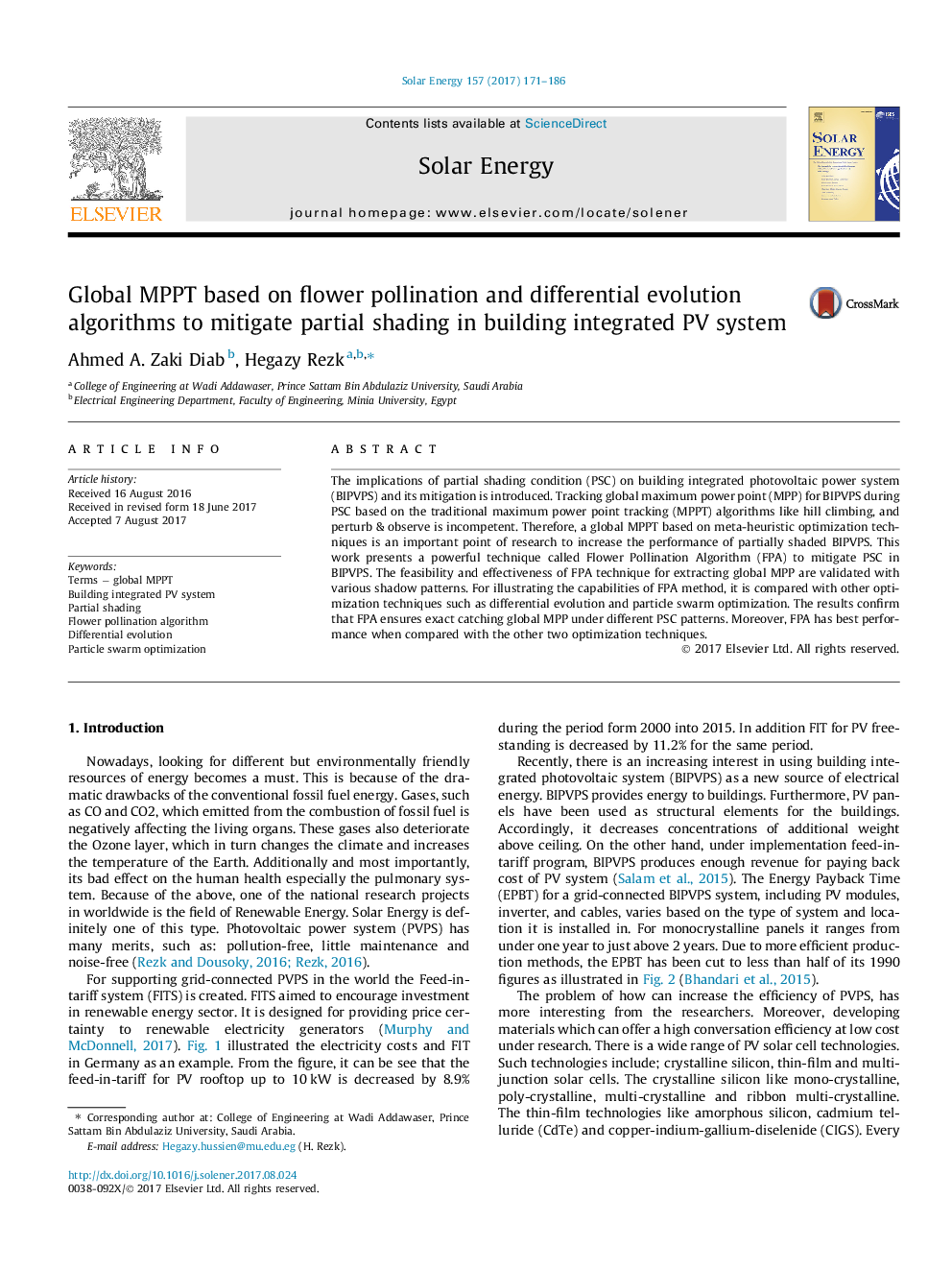| Article ID | Journal | Published Year | Pages | File Type |
|---|---|---|---|---|
| 5450862 | Solar Energy | 2017 | 16 Pages |
Abstract
The implications of partial shading condition (PSC) on building integrated photovoltaic power system (BIPVPS) and its mitigation is introduced. Tracking global maximum power point (MPP) for BIPVPS during PSC based on the traditional maximum power point tracking (MPPT) algorithms like hill climbing, and perturb & observe is incompetent. Therefore, a global MPPT based on meta-heuristic optimization techniques is an important point of research to increase the performance of partially shaded BIPVPS. This work presents a powerful technique called Flower Pollination Algorithm (FPA) to mitigate PSC in BIPVPS. The feasibility and effectiveness of FPA technique for extracting global MPP are validated with various shadow patterns. For illustrating the capabilities of FPA method, it is compared with other optimization techniques such as differential evolution and particle swarm optimization. The results confirm that FPA ensures exact catching global MPP under different PSC patterns. Moreover, FPA has best performance when compared with the other two optimization techniques.
Keywords
Related Topics
Physical Sciences and Engineering
Energy
Renewable Energy, Sustainability and the Environment
Authors
Ahmed A. Zaki Diab, Hegazy Rezk,
